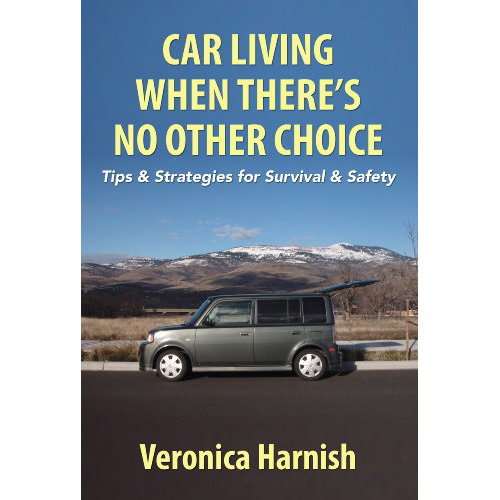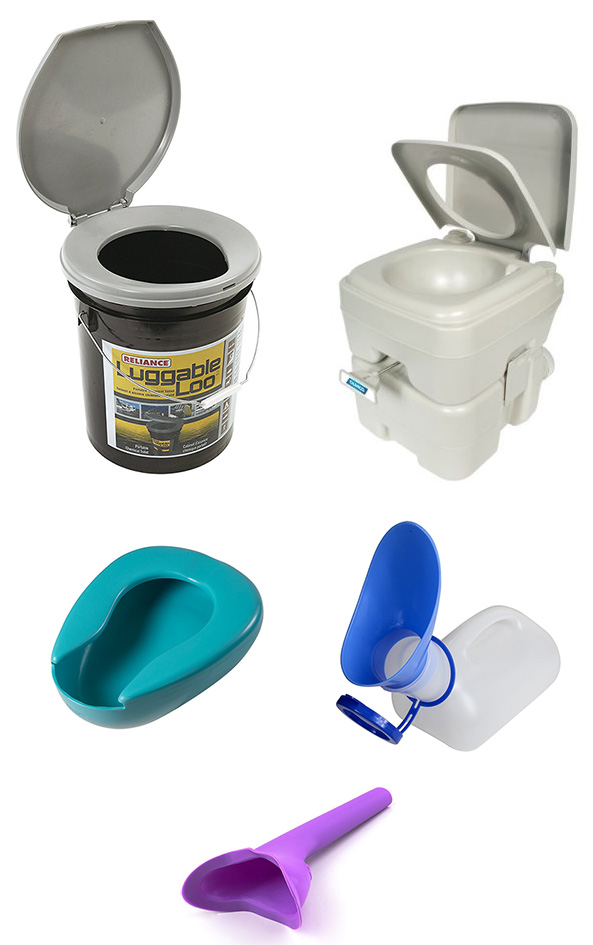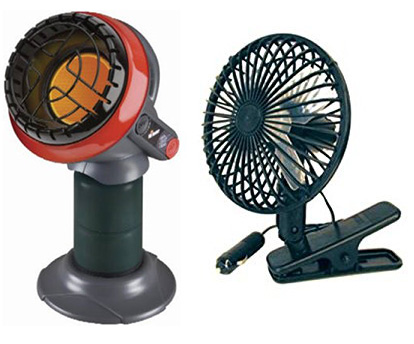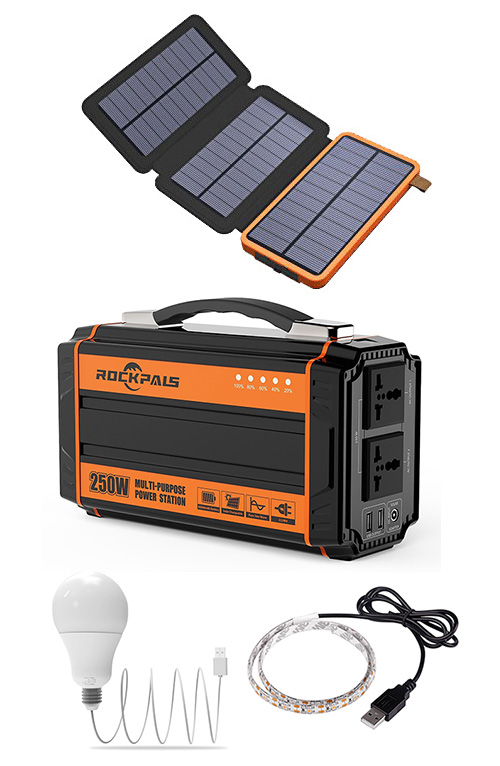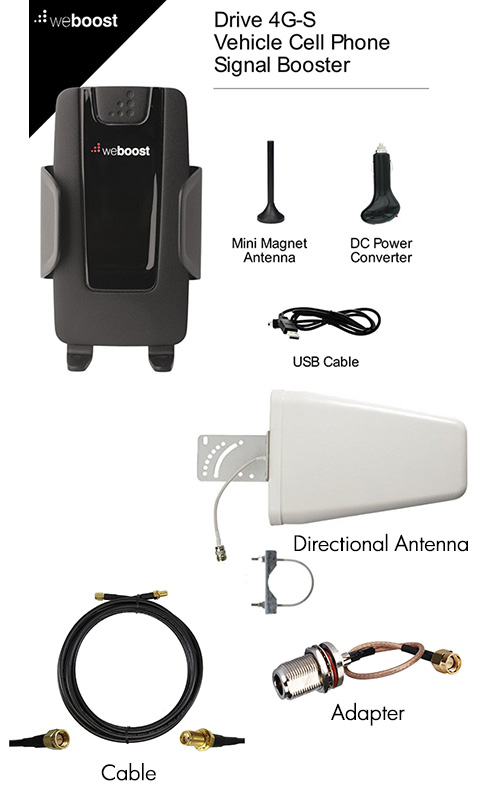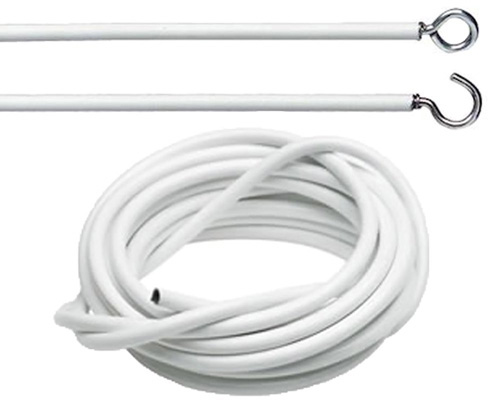Homeless – Living in a Vehicle Survival Guide
This section is a guide to homeless living in various types of vehicles. Like anything else, the more thought and planning we apply to our situation, the better the outcome. First off, be thankful you have a vehicle; living on the street is massively harder. Frequently you see folks living in cars cluttered with heaps of stuff. That is not very appealing. Keep your vehicle clean and organized. People will treat you better if you don’t appear to be homeless. It will take some discipline to put things away after you wake up, but well worth it. Having a neat and clean vehicle will enhance your self image and give you more confidence. Get in the routine of organizing, and improving your systems. Consider this as a major life project. Everything you do needs to be purposeful with the goal of getting back to whatever you consider a normal life.
Keep Busy While Homeless
Do not be idle, or stay in your vehicle all day. Apply for work, go to libraries, see free exhibitions, take classes, walk in the park. Attend free skills workshops. Nurse a cup of coffee while reading or chatting in a cafe. Meet new people. Do not get stuck in routines that depress you. Stay alive.
Bob Wells website “Cheap RV Living” cheaprvling.com is a must visit for anyone living in a vehicle. It is inspirational and resource rich. The top row of videos below are from that site, and Bob is featured in the documentary.
Veronica Harnish’s book on car living ($5.99 Kindle edition) is a must read. It is a comprehensive guide for navigating the intricacies of homeless car living.
Essentials for car living pt 1
Documentary on Vehicle Living
Ultra Compact Conversion
Essentials for car living pt 2
Small SUV Conversion
Classy Van Conversion
Amazing Car Conversion
Great Van Conversion
Homeless Hygiene Tips (click to open)
Good hygiene can be a challenge without a home. Your physical health and self-esteem are dependent on good hygiene. Your mental health can be adversely affected if you do not feel good about your appearance. If you look shabby, or smell, it will be difficult getting a job. There are many ways to keep clean even in the most challenging situations.
Basic Hygiene:
Wash hands frequently to avoid illness and especially before you eat. If you do not have soap and water use hand sanitizer. This is important after using the toilet. Avoid dental issues by brushing and flossing frequently. Use mouth wash to kill bacteria and for nice breath. You can also use mouth wash as a disinfectant on wounds. Clean your nails and keep them short. Clean up before going to sleep. You will wake up ready to meet the world. Use deodorant when you can’t shower, but that does not replace a shower.
Facilities with showers:
You can shower, change clothing, and groom at the YMCA (they have discounted membership low income), fitness gyms (Planet Fitness has a $10 a month plan), truck stops, camp grounds, and homeless shelters, public pools and recreation centers. College and University locker rooms are easy to slip in if you don’t attract attention. Many high-rise buildings have toilets with showers on the upper floors. If you are desperate enough there are cold showers at many beaches, or a coin operated car wash can do in a pinch with a bathing suit. Truck stops have paid showers for $8-$11.
Facilities with only toilets:
Some restaurants have locked doors such as Starbucks. Supermarkets are very good, but not very private. Hotel lobbies are very good and hospitals have the cleanest toilets. Avoid gas stations; they are typically filthy and don’t have hot water. A folding bucket is very handy. Fill it and go in the stall a have a sponge bath. If you do not have a folding bucket you can cut off the top of a 2-quart plastic bottle to make an instant bucket. You can store your toiletries in it to save room. If possible get a medium sized microfiber towel. They absorb more, take up less space than a regular towel, and dry very fast. You can brush your teeth at the sink after your sponge bath.
Be Stealthy: Use a cloth shopping bag or day pack to carry your stuff into a restroom. You do not want management to know what you are doing. Do not come out of the restroom with wet hair, that is a dead giveaway. Dry your hair as best as possible and conceal your damp hair with a cap. If the business learns what you are doing, you will probably be banned.
No Facilities:
You can clean up well with very little. Use a small spray bottle to moisten areas. Apply a very light layer of soap and wash. Wipe the soap off with a towel. Spray again and wipe to rinse. Be sure to clean your butt every day. An easy way is the “three paper towels” method. First towel is wet with soap. Second towel is wet for rinse. Third towel for drying. You can actually use a half paper towel for each operation. It may be obvious, but always wash your hands after cleaning your butt.
Female Hygiene:
Drink lots of water to keep your urinary tract healthy. Do not avoid drinking water to stop frequent use of a restroom. This is a major cause of urinary infection. Wipe from front to rear (vagina to rectum) to avoid bacteria entering the urinary tract and dry thoroughly. Also drink cranberry juice or take cranberry capsules. Make sure your hands are clean before changing Tampons. Clean with towelettes when soap and water is not available.
Woman on the pill are more susceptible to Yeast infections. Yeast infections thrive in moisture. Keep your vagina dry. Use cotton underwear. Eat yogurt when you can. A pee funnel is good for keeping the area dry and for going at night into a small container.
Shaving:
Shaving in the ruff. You can use sex lube which can be had at Walmart or any drug store for a couple of dollars. Use just a little. You need just a small amount of water to rinse. Dry your razor so it does not rust. You can also use a little sex gel in your hair. After combing the gel disappears.
Toiletry List:
Medium towel (Microfiber preferably)
Bar soap
Camping soap
Shampoo
Comb or brush
Small spray bottle
Collapsible bucket
Small mirror
Deodorant
Nail clipper
Razor
Tooth brush and toothpaste
Mouth wash
Floss
Toilet paper or tissues
A few paper towels
Toilets
You can find toilets in cafes, grocery stores, big box stores, fast food restaurants, rest stops, libraries, etc. Avoid gas stations, their toilets often are dirty. Some places have single person toilets that you can lock the door. These are good for shampooing your hair, a sponge bath, or washing your underwear. You can also do a sponge bath in a toilet stall. Use a day pack or a cloth shopping bag for your clothing and toiletries so you do not stand out. Wear a cap or hat to conceal your wet hair. If management discover that you are bathing in the restroom, you will probably be banned. Show respect, always leave the facility clean and keep relations good.
Vehicle Toilets
Vehicle toilets are another option. You should have a pee bottle in the minimum.
Chemical Toilet best for vans. Easy to dump with removable waste cassette.
Bucket toilet. good if you have a bit more room such as an large SUV or van.
Urinal, use for male or female. Must have for woman.
Pee funnel, allows woman to pee into a bottle, or inconspicuously while standing.
Bed pan, great for taking dump while sitting on your car seat. These are easy to spill. Store in front of passenger seat until you can empty it. To keep smell down and chance of spilling, empty into a sealed container. Rinse pan with a cupful of water and spray with Lysol to disinfect.
Keeping Warm and Cool While Living in a Vehicle
Heat & Cold, Cars are not insulated and you will need to find way to stay warm or cool. Your first option is clothing. Use layers that you can adjust throughout the day and night. If you are in a car put a sheet or blanket over the seats to preserve the upholstery from sweat stains. If in a wagon, SUV, or van, use a foam pad to sleep on. This will give you bottom insulation. As with clothing use layers on the bedding for comfort. It is not a good idea to run the car for AC or heat. This is expensive, adds wear to the vehicle, and causes unneeded pollution.
You can use a 12V fan, or a small catalytic heater which produces very little carbon monoxide. Always keep a window cracked for fresh air and oxygen that you and the heater use. Be careful to find a safe place for the heater in the vehicle. Allow enough room around ithe heater so as not to melt or burn anything.
Ventilation: Leave windows cracked to let fresh in and moisture out. Even when sleeping in cold weather at least one window needs to be cracked open at no less than 1″ (25mm). Make sure opening is not enough to allow a hand in. Your bedding and just about everything else will get moldy unless you keep the moisture level low.
Powering Devices When Homeless
Charging Devices & Lighting, Using a USB or cigarette lighter outlet to charge devices is limited unless you do a lot of driving. You may want to keep several devices charged, and may want some lighting during the night. For lighter demands an all-in-one solar charged battery is a good choice. it will charge a phone, iPad, and run LED lighting. A larger device may be needed if you are working from your car and running a laptop and phone for hours at a time.
Small solar charges have an internal battery and a fixed solar panel. Some have additional fold out panels. They range from 6000 – 30000 mAh (milliamp hours). 1000 milliamps = 1 amp. So a 20000 mAh unit would provide 20 amps for 1 hour. These devices are typically overrated so cut that in half. The solar panel surface area is proportional to its output. Bigger is better, and will charge batteries faster. Leave the charge unit on your dashboard and have power in the evening.
Larger units are called “Power Generators” and come in various sizes. They include 110VAC outlets. A good choice for laptops, phones, lighting, and fans is the Suaoki 220Wh/20,000mAh Portable Generator Power Source. You can charge from an outlet, cigarette lighter or connect to an optional solar panel.
There are many USB powered LED lights that can plug into either power source.
Working From a Vehicle
Communication: You will be wireless in a vehicle. If you are in a city you will not a problem with signal strength. When you leave the city it can get sketchy. AT&T is worthless. The rest are marginal, especially as you get into more rural areas. Verizon is the king. They have towers pretty much everywhere. I learned my lesson the hard way. I bought an iPad with AT&T and had to sell it because it did not work in any area I went to outside of a city.
Many people these days conduct their lives on a smartphone. If you are working from your vehicle you will probably need a larger device such as an iPad or laptop. Your work will depend on a strong signal which won’t be much of an issue in the city. If you work from a laptop you will probably need to tether to your phone or have an independent cellular device.
When working in low signal areas you will need a boost.. The We Boost kit comes with a magnetic external antenna. If you are way out there you may need a directional antenna.
Booster: We Boost Cellular signal amplifier with external antenna.
Directional Antenna: For remote areas. You will need the cable and adapter below. Antenna will need a mast which can be electric conduit.
Cable: 10′ should do.
Cable Adapter: You will need this to go from the thick cable to something more flexible so as not to destroy the mini connector on the booster.
Privacy in Your Vehicle
Privacy: If you can afford have the windows tinted as dark as is allowed. You can also buy the material and do it yourself. For the windshield get a good fitting sunshade. There are custom sunshades for many make and models available. You can make privacy covers for your windows with several types of materials. Black vinyl corrugated panel is one of the best and is available at advertising sign shops and some art supply stores. Adhesive Velcro makes it easy to install and remove each day. You can do the same with cardboard which will be more obvious that you are sleeping in your car. You can also use thin fabric by sliding it under the window seals. A butter knife works well for this. Be sure to leave at least one window slightly open for ventilation.
Curtain springs can be installed which stretch across the windows. It requires drilling some small holes above the windows.
Food Selection for Homeless Car Living.
The more food you have in your car, the less likely that you will go into a restaurant and blow your budget. Buy nutritious food that does not spoil easily such as peanut butter, crackers, sardines and other canned fish, canned meats, canned beans and chili, etc. Keep a few days supply of fresh fruit and veggies on hand. You need this to prevent constipation and round out your diet. Do not buy potato chips, candy, soft drinks, and other junk food. This will eat up your money and we all know it is bad for you. You are living on the edge and need to maintain your health, be wise.
Clothing – Suggested List: Hooded rain coat, shell jacket, heavy coat for cold climates, hooded sweater, microfiber sweater, Good solid shoes, Flip flops’ 4 pair pants or combination of skirt and dresses, 4-5 T-shirts or tops, 2 Collar shirt or nice tops, 7 Underwear, 7 Pair socks. Ski cap, Baseball cap, Laundry bag. Keep 2 nice outfits ready to use for interviews and events. You should have enough clothing so you only do laundry once a week. It is easy to have too much clothing which will clutter up your vehicle.
Equipment:
Go to the: Living on the Street section for detailed equipment list.
Bedding: Cushion, sleeping bag, pillow, 2 sheets, 2 pillow cases, quilt, and a lighter blanket. The sleeping bag will be used for extreme cold. The quilt can be thrown over that for more insulation. The light blanket for milder weather. Adjust your blankets so you do not sweat when sleeping. Sweating will increase the frequency of needed showers which may not always be readily available.
Storage: Plastic containers in various sized are best. Label the containers in large print to locate easily: food, school supplies, under garments, shirts & pants, meds /first aid, tools. Keep 1 gallon and smaller Zip-lock bags on hand, they are indispensable.
Ear Plugs: Keep a few pair of ear plugs handy. You will get a better nights sleep. A piece of tissue or toilet paper will do in a pinch. It will be harder to hear people outside your vehicle that may be checking you out.
Insurance: You must maintain coverage. If you are stopped by the police for any reason and you are not insured, your vehicle will be towed right on the spot. It will be very costly to get it back. If this occurs there is a strong possibility that it is game over, and you will be on the street. Keep your registration and proof of insurance handy.
Avoid traffic tickets and towing. You cannot afford that. They can lead to a downward spiral to loosing your vehicle. The number one cause of citations is speeding, don’t. Stay out of the fast lane on highways, that is where most ticketing happens. Don’t stand out with a dirty car, you will more likely be stopped. Do not park in tow-away zones. Do not abandon your vehicle for any long periods.
Parking: Do not park in the same place more than 2 days unless you have permission such as in a friends driveway. It is better to rotate among 7-10 spots to keep your profile low. Try to park near other cars so you won’t be noticed. Parking under a streetlamp is preferred. It will keep thieves away and your dome light won’t be noticed.
Police: If the police come to your parked vehicle be courteous and submissive. Do not give them permission to search your vehicle (that is your right). Let them know what you are doing like; “I am getting dressed”, I am getting my ID. Do not do anything stupid like reaching into you glove box without first asking permission. Do not give them reason to become aggressive. Answer all their questions non-aggressively.
Where to park to sleep:
Check with local ordinances for parking in retail store lots, Some areas do not allow it.
A friends driveway is the best place. It will be safe and you may be able to use their facilities.
Walmart allows vehicle to park overnight. They are generally safe and you can use the stores toilet.
Big Box Stores: Most Sams Club, Kmart, Camping World,, Many super markets will let you, check first.
Industrial parks are deserted at night. You may stand out. Try to find trucks and park next to them.
Public parks may vary by area and what type.
BLM Land: Free parking without permits for up to 14 days.
Closed businesses. You can stay in business parking lots, but you should leave before they open.
Railway station parking lots are typically empty at night.
Truck stops are noisy and you may smell diesel fumes. On the up side they have showers and restrooms.
Rest Stops They usually have a time limit, but don’t seem to enforce it if less than a day.
Apartment Complexes: With so many vehicles you will blend in. Do not park in any assigned slots. Guest slots only.
Where not to park:
Hospitals, tight on security.
Church lots are empty at night and you will stand out.
Schools, They will probably think you are a predator.
Suburban streets, People are very suspicious of cars they do not recognize. They will call the police.
Homeless enclaves, your chances are high for getting robbed, catching a disease, or parasites.
Metered parking, If you oversleep you will get a ticket, If you are away from the vehicle you can get a ticket or be towed.
Stealth Parking by Bob wells
Where To Stealth Park
Here is a list of ideas where to park and sleep for the night. Some of these will work while you are in urban environments, and some won’t.
 Some are good for when you are traveling and in-between cities. Give them a try and see how they work for you.
Some are good for when you are traveling and in-between cities. Give them a try and see how they work for you.
First, let’s talk about legalities and ethics. I have tried most of these ideas and have no problem doing so. However, I cannot recommend that you break any laws or lie to authorities. You do so at your own risk!
Wal-Mart:
As most experienced boondockers know, Walmart (and Sam’s Clubs) love and welcome us to stay in their parking lots. Unfortunately, some cities have made it illegal to do so and strictly enforce it against Walmart. However, the
enforcement is usually selective and they will not enforce it at other big-box stores. I carry a Rand Macnally atlas I bought at Walmart that also has a listing of where all there stores are and will usually call ahead to find out the status of that Walmart. There is a group on Yahoo that keeps track of which Walmarts are closed to parking.
Hospitals:
This is a great stealth spot. If approached by security (unlikely) tell them you are from out of town waiting to see Aunt Sue in the morning. Who would turn you away? As an added benefit, most hospital cafaterias offer decent food at reasonable prices. There are almost certain to be healthy options.
Motel, Hotel Parking Lots:
Medium sized is best, too small and you stick out, too big and they may have security which will double check license plates against the registry. Park like you are a guest staying there. Too far away seems odd, but too close and there will be more noise and activity.
Car Repair Garages:
Park as if you were dropping the vehicle off to be serviced. If a cop comes by, which is unlikely, tell them you are traveling, had a problem, and are waiting for the garage to open in the morning to get repairs. Many shops have a drop-off slot so it doesn’t seem strange for a strange vehicle to be waiting. If not, when the employees get there in the morning, they will start wondering why you are there so leave early.
Closed Large Retail stores:
If the parking lot has plenty of employee vehicles, just park with them and no one will notice. But what if there aren’t any other vehicles? One idea is to put a “For Sale” sign on the dashboard before you go to bed. Use a local phone number if possible.
24 hr Businesses:
You are just another customer or employee so no one will notice you. Sometimes they have security and are one of the safest places you can stay.
Apartment Complexes:
Lots of cars parked out front and no one knows who they belong to or who is having visitors/guests. Very safe parking.
Churches:
If you are a member of the denomination, or ask first, this can work. It is fairly common to see RV’s parked in church parking lots. However, a car or van parked in front of a church in the middle of the night can draw attention. I personally avoid this one.
Casinos:
These are usually very accepting of RV’s and vandwellers alike. But if not, then be very stealthy.
Night Clubs:
It’s common for patrons to drink too much and take a cab home, leaving their vehicle in the parking lot overnight. No one will think twice about you being there, but there is a risk of rowdiness and noise at closing time.
Police Station:
Why not? Go in and tell the officer you are passing through and need to catch a few hours sleep. Could you sleep in their parking lot? If he says yes, you are set. If he says no, ask him for ideas where you can park. He probably will help you out, and if not, at least you have found out about the local overnight sleeping laws of that town.
Dirt Road:
Find a dirt road and follow it to a spot that gets you out of the path of passing headlights at night. There are two camps on this one. One says it is the best and safest place another says it is the most dangerous and should be avoided at all costs. I have done this many times when driving the Alcan to and from Alaska, and felt perfectly safe. However, I won’t do it in more urban areas, but that’s up to you to decide for yourself.
Truck Stops:
These almost always welcome RV’s and van dwellers and often will have a designated area for us. Sometimes there are extra services like showers and wifi connections.
Rest Areas:
These vary by state. Sometimes you are welcome to stay and sleep, sometimes it is against the state law. You are going to have to do the research for where you are at. There have been murders at rest areas, and so some people won’t stay there. However, the vast majority of the time they are safe and reasonable places to stay. Decide for yourself.
Some Helpful Tips Wherever you Stay:
- Move around: If you stay at the same place over and over again, people will notice. Sometimes that is fine because no one cares. Other times you will be asked to move. Generally, the lower your profile, the better.
- Spend the minimum amount of time at your sleep location: I usually scout out my location, then find a convenience store (or other public restroom) and use the rest room (and brush my teeth if possible). I go straight to my sleeping spot and go to bed. In the morning I return to the convenience store and use the restroom and freshen up as much as possible.
- Keep the van dark and quiet: If you read yourself to sleep or watch TV, make sure you can’t see the light through any of the windows and the TV/radio/music low enough so no one else can hear it.
- Have your story ready: If you are in front of the hospital, who are you there to see, and what is wrong with them? If you are just passing through, where are you from and where are you going and why? If you are in front of a car repair shop, what’s wrong with your car?
- Be as conventional as you can be. Fulltimers are unconventional, and many people are afraid of things that are different from the norm. Make yourself as normal looking as you can. If you are retired military, show that id to the officer. Keep yourself and your vehicle as clean and neat as you possibly can. In other words, blend in.
- Don’t set up camp! Even if you know you are welcome to park there, do not take advantage by putting out slides, popping your top, setting up the bar-b-que, and making yourself at home. This is what makes cities pass laws against boondocking. Don’t ruin it for the rest of us.
- Follow your gut: If it doesn’t “feel” right, don’t stay there!
Homelessness in a Van
Being homeless in a van is a much better way to go if you can swing it. If you are part of the ever growing “working homeless” community, a van makes a lot of sense. You can have many of the amenities of a home, toilet, refrigerator, stove, and a comfortable bed. It is surprisingly inexpensive to outfit, under $1000 for all the items mentioned. Having a job will offset the cost of lower gas mileage.
This portable compressor refrigerator unit uses 12VDC 3 amps (36 Watts) and operates from you cigarette lighter. Don’t buy a thermoelectric unit, they use too much energy. As it is you, will have to be careful about keeping your battery charged to run this. You should get a minimum 140 Watt solar panel and regulator to keep your battery charged.
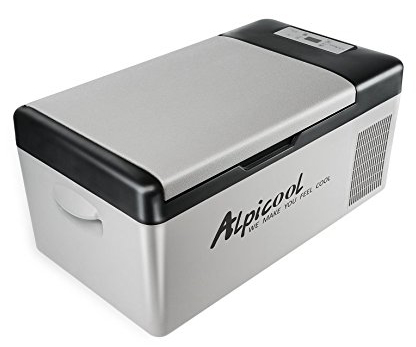
Using a minimum 100 Watt solar panel will keep you battery up. This will run your fridge and LED lighting. You can install this panel on the van roof. You may consider installing a separate battery with a regulator so it does not drain your car battery. This regulator has 2 USB charging ports to keep your phone and laptop charged.
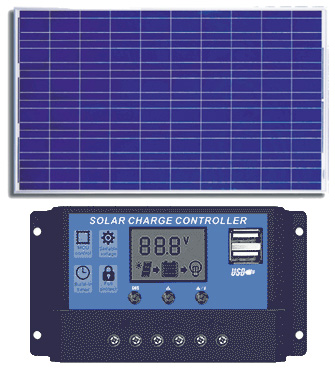
This is a great design for a portable chemical toilet. You can carry the cassette into any public restroom and dump it.
- 5.3 gallon holding tank is detachable; 2.5 gallon flush tank
- Sealing slide valve locks in odors and protects against leakage
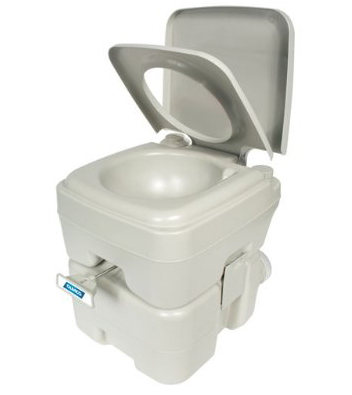
This 2 burner propane stove uses a refillable propane tank. This is a lot more economical that the throw away 1 quart cylinders. It is also much more ecological. Tanks can be purchased as small as 1 gallon. The small tank may cost more, but it will take up less room in your van. I gal of propane will cook several months of meals. You should never use a propane stove to heat your van. Always keep a window ajar while cooking.
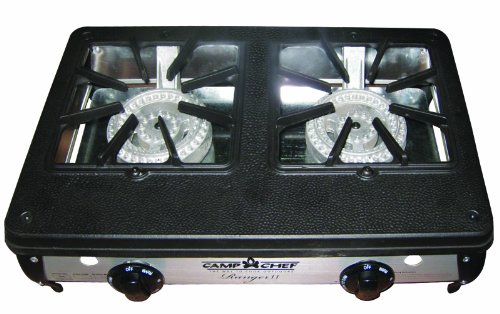
Basic Vehicle Maintenance
Check the gauges when driving. You do not want to burn up your engine because of low oil or coolant. Check under the hood frequently, it only takes a few minutes to check levels. For service find a smaller auto shop. They may be able to give you a break if you tell them you are homeless. Do what maintenance you can to save money.
Car Maintenance Basics:
1- Oil, check level and add ass needed
2- Radiator coolant, DO NOT OPEN WHEN HOT, check and top off.
3- Brake fluid level, check and top off.
4- Windshield washer fluid, check and top off, You can use diluted Windex to save money.
5- Tire pressure, low pressure will wear tires prematurely, too high and car will skid in rain and snow.
6- Fan belts, check for wear and fraying. Check tension.
7- Battery, have garage check periodically. Weak batteries place a strain on the electrical system.
8- Brake pads, have garage check periodically. If it gets down to bare metal the repairs will cost a lot more.
Basic Maintenance

